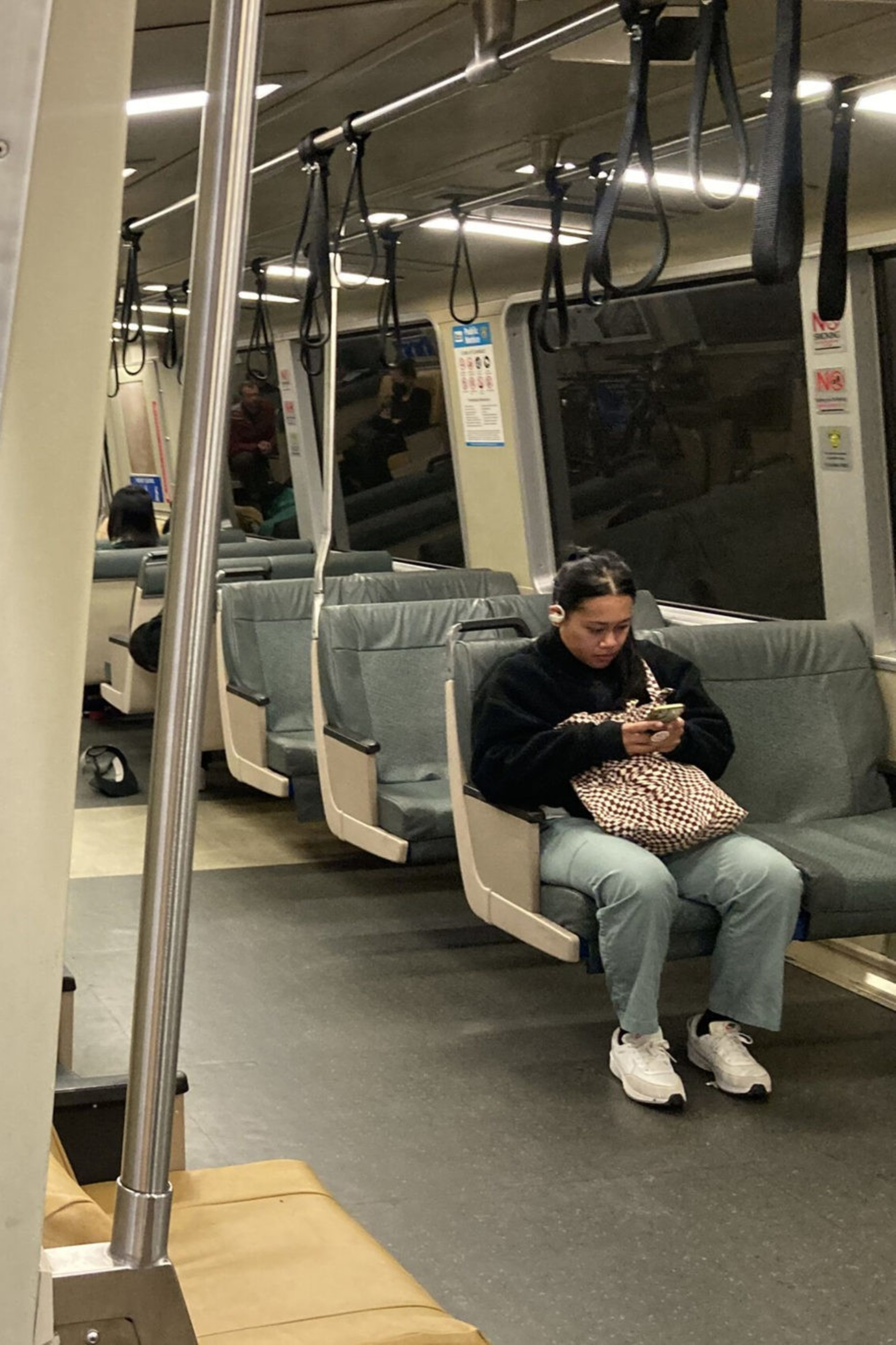The consequences for riders if local agencies fail to secure a state bridge loan and long-term public financing are depressingly stark.
In the worst-case scenario, the San Francisco Municipal Transportation Agency would have to cut Muni service by 50%, axe reduced fare programs, and cut back on street improvements, according to a source with direct knowledge of the agency’s finances.
BART could cut the Red and Green lines entirely, eliminate service on weekends and after 9 p.m., and reduce weekday service to one train per hour on the remaining lines, according to spokesperson Alicia Trost. The BART lines that could be discontinued under the worst-case scenario run from Millbrae to Richmond and Daly City to Berryessa, providing direct service between East Bay destinations and San Francisco.
Reduced transit ridership would, in turn, cause traffic chaos on roadways — as was the case when BART experienced a systemwide meltdown Friday.

Such a disastrous outcome became conceivable when state officials announced Saturday that California would not finalize a $750 million loan previously promised to BART, Muni, Caltrain, and AC Transit. After an immediate outcry, Gov. Gavin Newsom seemed to backtrack; on Monday, he said he was working with stakeholders (opens in new tab) and hoped to hammer out an agreement by “this fall.”
Trost announced (opens in new tab) Wednesday morning that lawmakers have introduced language into the budget bill that "expresses everyone's intention to work out the terms of a state loan" by January.
Newsom's office followed up with a statement (opens in new tab) Wednesday morning, announcing "hundreds of millions of dollars" for local transit agencies through financing "tailored to their needs." The statement does not include a specific dollar amount or mention the previously proposed $750 million loan — instead, it says the state will work with transit agencies to design new financing tools.
The good news is that even if the loan doesn’t come through, local agencies won’t immediately have to cut service. But without the state money, they will be one step closer to doomsday. And if a ballot proposition (opens in new tab) to fund local transit does not pass in November 2026, BART and Muni could impose major service cuts as soon as 2027.
If neither the state loan nor the referendum funding comes through, even extreme service cuts won’t solve BART’s woes, according to Laura Tolkoff, transportation policy director at urban-planning nonprofit SPUR.
“Even if you make all those cuts, all you’re left with is a death spiral,” Tolkoff said. “You’re not left with a balanced budget.”
The bridge loan was envisioned as an emergency stopgap. Next November, voters will be asked to approve a ballot measure that would provide regional transit funding. But that funding wouldn’t start flowing until 2027; the loan is meant to stave off service cuts until then.
Without the loan, agencies will have to scrape together funds from other budgetary pots, weakening them in the long term. SFMTA would have to drain its reserves to maintain service, according to a person with knowledge of its finances.
“It would not be good,” the source said, explaining that without the loan, even the ballot measure revenue would not be enough for SFMTA to rebuild its savings. That means that next time the agency finds itself in financial peril (likely within a few years), it would have to start cutting service.
BART is in a similar situation. Trost said the state loan was just one prong of BART’s funding strategy.
“We are relying on internal cuts, efficiency measures, and a series of one-time solutions to help get us to a ballot measure to pay for operations,” Trost said in a statement.

A rally Monday at City Hall drew local and state officials who warned that the $750 million state loan was crucial to keeping the Bay Area’s economy afloat. Advocates held signs saying “Governor Traffic Jam” and “Gov. Newsom keep your promise.” Some dressed in medical scrubs and holding IVs displayed cardboard buses and trains on gurneys.
Mayor Daniel Lurie told the crowd he had been in “hourly” contact with Newsom’s office since Thursday about the need for the loan, and progress had been made.
“It’s been a weekend,” Lurie said.
Lurie and other transit advocates will meet this week with the governor’s office on the issue, the mayor said.
“Every working family, senior, student, and business leader knows that public transit is key to our comeback,” Lurie said.
Also at the rally were Assemblymembers Catherine Stefani and Matt Haney and State Sen. Scott Wiener.
“To deny us the funds to get through this difficult period, to prevent us from actually sustaining transportation and getting to the solutions that we know are ahead is outrageous and awful and wrong,” Board of Supervisors President Rafael Mandelman said. “And a punch in the face for every Bay Area resident.”

